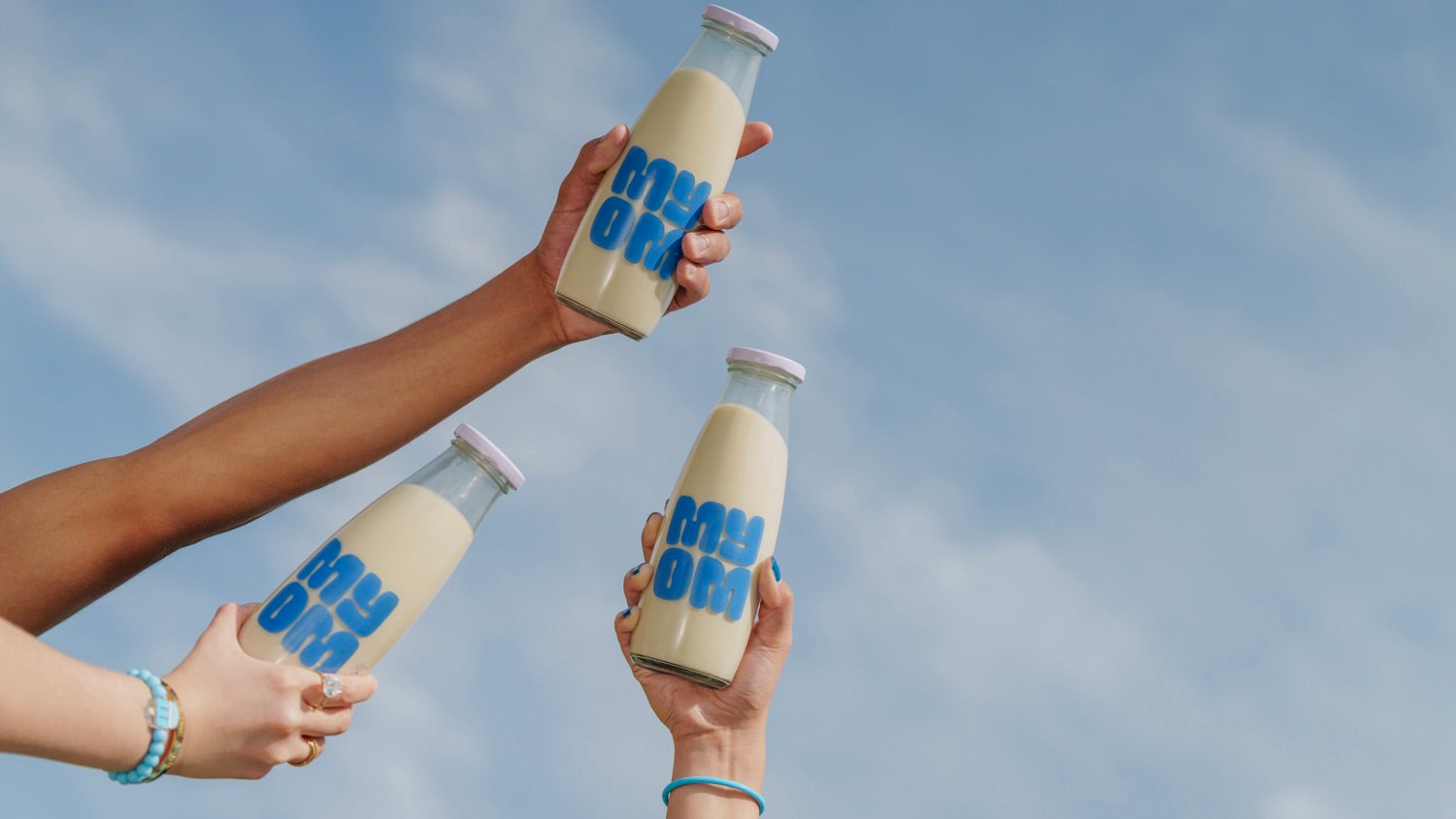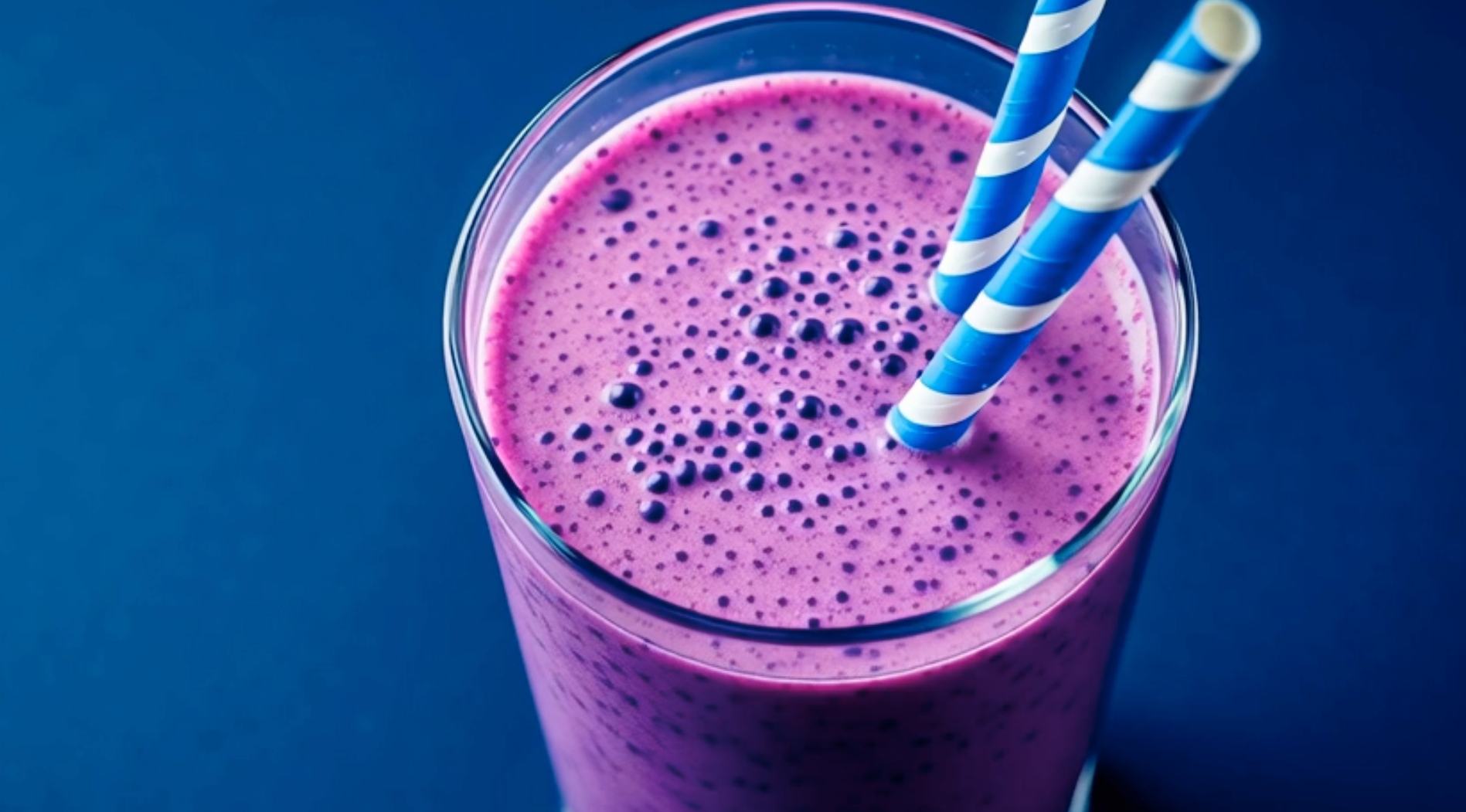A Nutritional Guide for Health-Conscious Drinkers
Plant-based eating has never been more popular in the UK. Whether you’re cutting down on dairy for health reasons, going vegan, or simply trying to live more sustainably, oat milk is often the first alternative people reach for. But with growing popularity comes a big question many health-conscious people ask: is oat milk fattening?
The short answer is no — when chosen wisely, oat milk can be a healthy, balanced addition to your daily routine, and in many cases, it can even support weight management. But not all oat milks are created equal.
In this blog, we’ll take a closer look at the nutritional profile of oat milk, compare MYOM Original Oat with leading UK brands sold in cartons, and explain how oat milk fits into your daily nutrient needs. If you’re watching your calorie intake or managing your weight, this guide will help you make informed choices.
Understanding Oat Milk Calories
Calories are often the first thing people consider when asking whether a food or drink is “fattening.” But calories alone don’t tell the full story. What really matters is:
- How nutrient-dense the calories are.
- How the drink contributes to your overall daily requirements.
- Whether it helps you feel satisfied or leads to overconsumption.
On average, oat milks range between 34–60 kcal per 100ml, depending on the brand and formulation. That’s similar to semi-skimmed dairy milk (around 47 kcal/100ml) but lower than whole milk (65 kcal/100ml).
Here’s how the numbers stack up when comparing MYOM to other UK oat milks:
|
Brand |
Calories /100ml |
Fat |
Sugar |
Fortified Nutrients |
|
MYOM Original Oat |
34 kcal |
1.4g |
1.9g |
Calcium, B12, D3, Iodine |
|
Oatly Barista |
57 kcal |
3.0g |
3.3g |
Calcium, B12, D2, Iodine |
|
Alpro Oat |
46 kcal |
1.5g |
2.6g |
Calcium, B12, D2 |
|
MOMA Oat |
48 kcal |
1.5g |
2.6g |
Calcium, B12, D2 |
|
Minor Figures Oat |
46 kcal |
2.1g |
2.9g |
Calcium, B12, D2, Iodine |
|
Semi cow’s milk |
47 kcal |
1.7g |
4.8g |
Calcium, B12, D2, Iodine |
|
Whole cow’s milk |
65 kcal |
3.6g |
4.7g |
Calcium, B12, D2, Iodine |
Quick takeaway: MYOM Original Oat is the lowest in calories compared with the main carton brands, while still providing meaningful levels of key vitamins and minerals.
How Many Calories in Oat Milk Compared to Other Drinks?
For context, here’s how a glass of oat milk (200ml) fits compares:
- MYOM Original Oat: 68 kcal
- Oatly Barista: 114 kcal
- Alpro Oat: 92 kcal
- Semi-skimmed cow’s milk: 94 kcal
- Whole cow’s milk: 130 kcal
This shows that MYOM oat milk sits at the lighter end of the calorie spectrum, while many carton brands are closer to semi-skimmed or whole milk.
Is Oat Milk Good for Weight Loss?
The phrase “fattening” is outdated — weight management isn’t about single foods but about your overall balance of calories in and calories out. That said, the nutritional quality of those calories matters.
Oat milk can be part of a weight-loss diet because:
1. It’s lower in calories than many dairy options.
Choosing MYOM Original Oat over Oatly Barista saves around 46 calories per 200ml glass. Over a week, that’s more than 300 calories — the equivalent of a small meal.
2. Slow-release carbohydrates.
MYOM Oat milk provides a steadier release of energy, helping you feel satisfied rather than spiking blood sugar.
3. Fortified with key micronutrients.
MYOM adds calcium, vitamin B12, vitamin D3, and iodine, supporting bone, brain, and thyroid health — nutrients that can sometimes be lacking in plant-based diets.
4. MYOM avoids unnecessary additives.
Many carton oat milks include emulsifiers or stabilisers like dipotassium phosphate. MYOM keeps things simple: just oats, rapeseed oil, a pinch of sea salt, and essential nutrients.
Bottom line: If you’re counting calories, MYOM is one of the lowest calorie oat milk choices in the UK.
Breaking Down the Nutritional Benefits
1. Calories & Energy
At 34 kcal per 100ml, MYOM is the lightest of the group. For most adults, energy needs range from 1,800–2,500 kcal/day, meaning a glass of MYOM contributes only 3–4% of your daily intake.
2. Fat
- MYOM: 1.4g fat (0.2g saturated)
- Oatly Barista: 3g fat (0.3g saturated)
- Alpro/MOMA: 1.5g fat (0.2g saturated)
Most of the fat in MYOM comes from rapeseed oil, which is high in healthy unsaturated fats and omega-3 precursors. This makes it heart-friendly compared with dairy fats or coconut-based plant milks.
3. Carbohydrates & Sugars
MYOM has 4.7g carbs per 100ml, of which only 1.9g are natural sugars. That’s less than Oatly (3.3g sugars) and similar to Alpro/MOMA. Oat milks do contain more carbs than almond or soya drinks, but they’re mostly from oats’ natural starches — providing gentle, steady energy.
4. Protein
Protein is lower in oat milk compared with cow’s milk or soya drinks. MYOM offers 0.4g per 100ml, similar to Alpro/MOMA but less than dairy. This means oat milk shouldn’t be your main protein source — but it can be paired with a protein-rich diet (legumes, tofu, nuts, seeds, fish, eggs if not vegan).
5. Fibre
MYOM provides 0.5g fibre per 100ml, more than most carton brands, which often filter fibre out during processing. Fibre supports digestion and satiety, a subtle but valuable benefit when managing weight.
6. Fortified Nutrients
This is where MYOM shines:
- Calcium: 130mg (16% RI)
- Vitamin B12: 36% RI
- Vitamin D3: 15% RI
- Iodine: 20% RI
For adults following a plant-based diet, these nutrients are essential:
- Calcium keeps bones and teeth strong.
- Vitamin B12 is vital for nerve function and red blood cell production.
- Vitamin D3 supports immune and bone health, especially in winter.
- Iodine regulates metabolism and thyroid function.
How Oat Milk Fits into Daily Nutrient Needs
To see the bigger picture, let’s compare how a 200ml glass of MYOM Original Oat contributes to your daily recommended intake (RI):
- Calories: 68 kcal (3–4% RI)
- Fat: 2.8g (4% RI)
- Carbs: 9.4g (4% RI)
- Sugars: 3.8g (4% RI)
- Fibre: 1.0g (4% RI)
- Protein: 0.8g (1–2% RI)
- Calcium: 260mg (32% RI)
- Vitamin B12: 72% RI
- Vitamin D3: 30% RI
- Iodine: 40% RI
This shows that while MYOM is light in calories, it punches above its weight in essential vitamins and minerals. Just one glass contributes meaningfully to your daily calcium, B12, D3, and iodine needs.
Why Some Oat Milks Have More Calories
You may notice that Oatly Barista and Minor Figures Oat are significantly higher in calories. That’s because they add more oil to improve foaming for coffee. These barista-style blends are great for lattes but nearly double the calorie load of MYOM.
If you drink oat milk mainly in tea, smoothies, or cereal, MYOM is the more calorie-efficient choice. If you enjoy coffee shop-style lattes daily, we will soon introduce MYOM Oat Barista option to the range.
The Bigger Picture: Oat Milk and a Balanced Diet
So, is oat milk fattening? No — unless you’re over-consuming it without accounting for its calories. In fact, MYOM’s light calorie profile makes it a smart choice for health-conscious drinkers.
But remember, oat milk isn’t designed to be your only source of nutrition. It works best as part of a varied plant-based diet that includes:
- Protein from beans, lentils, tofu, tempeh, or lean meats/fish.
- Healthy fats from nuts, seeds, olive oil, and avocado.
- Carbohydrates from whole grains, fruits, and vegetables.
- Fibre from a variety of plant foods.
Used this way, oat milk supports your health goals without tipping the calorie balance.
Frequently Asked Questions
1. Is oat milk high in fat?
No. MYOM contains only 1.4g fat per 100ml, mostly unsaturated. That’s lower than full-fat dairy and even lower than some other oat brands.
2. Does oat milk make you gain weight?
Only if you consume it in excess without adjusting the rest of your diet. On the contrary, MYOM’s lower calorie count makes it one of the least likely to contribute to weight gain.
3. How many calories are in a latte with oat milk?
A latte with 200ml MYOM adds 68 kcal from the milk. With Oatly Barista, the same drink is 114 kcal. Over time, the difference adds up.
4. Is oat milk good for weight loss?
Yes — especially MYOM. It’s light in calories, contains fibre, and is fortified with key nutrients, making it a supportive choice for weight management.
The MYOM Difference
Unlike traditional oat milks that ship heavy cartons of water, MYOM comes as a concentrated oat premix. You simply add water at home. That means:
- Less packaging waste
- 80% lighter to transport
- Delivered through your letterbox
- Fresher taste without long shelf-life additives
And nutritionally, MYOM delivers more for fewer calories. That’s why it’s become the go-to for people who want both health and sustainability in their plant-based choices.
Final Thoughts
So, is oat milk fattening? Absolutely not. In fact, it can be one of the smartest swaps you make if you’re trying to manage calories without sacrificing taste or nutrition.
Among UK options, MYOM Original Oat stands out as the lightest in calories while still providing essential nutrients like calcium, B12, D3, and iodine. Whether you’re pouring it over cereal, adding it to smoothies, or making your morning flat white, MYOM helps you stay on track with your health goals.
If you’re looking for an oat milk that’s kind to your waistline, kind to the planet, and rich in nutrients — MYOM is the answer.




